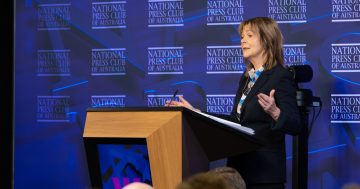 The Legislative Assembly’s Standing Committee on Economy and Gender and Economic Equality has invited feedback on the future of the working week and the amount of time people spend at work.
The Legislative Assembly’s Standing Committee on Economy and Gender and Economic Equality has invited feedback on the future of the working week and the amount of time people spend at work.
Chair of the Committee, MLA Nicole Lawder said the Committee’s inquiry into the future of the working week began in May of this year and its Discussion Paper Future of the Working Week sought to consider and provide contextual background for each of the Terms of Reference.
“When considering questions such as the future of the working week, the pivotal consideration is about time, that is, the amount of time we spend at work,” Ms Lawder said.
“Questions about the amount of time we spend at work are often couched in the context of decreased time at work, in the form of a shorter working week, such as, a four-day work week,” she said.
“While the Committee does not have a particular view at this time about what a four-day work week would look like, and whether it is the future of work, arguments may be anticipated on both sides of the question as to whether a four-day work week is the future of the working week.”
Ms Lawder said a negative view of the four-day work week may see it as costly and unaffordable; difficult to implement in some industries and sectors; and unrealistic.
The Chair said there were also arguments for working fewer hours.
“Some are economic, some are about health and wellbeing, environmental sustainability and stronger communities,” she said.
“Some have to do with equity and equality.”
Ms Lawder said the Discussion Paper and the Committee’s inquiry were about facilitating a public conversation on the future of the working week, “in particular, the validity of the standard working week and whether it merits change to a four-day working week”.
The Committee’s 61-page Discussion Paper, including information on how to have a say, can be accessed at this PS News link and its one-page Terms of Reference at this link.











